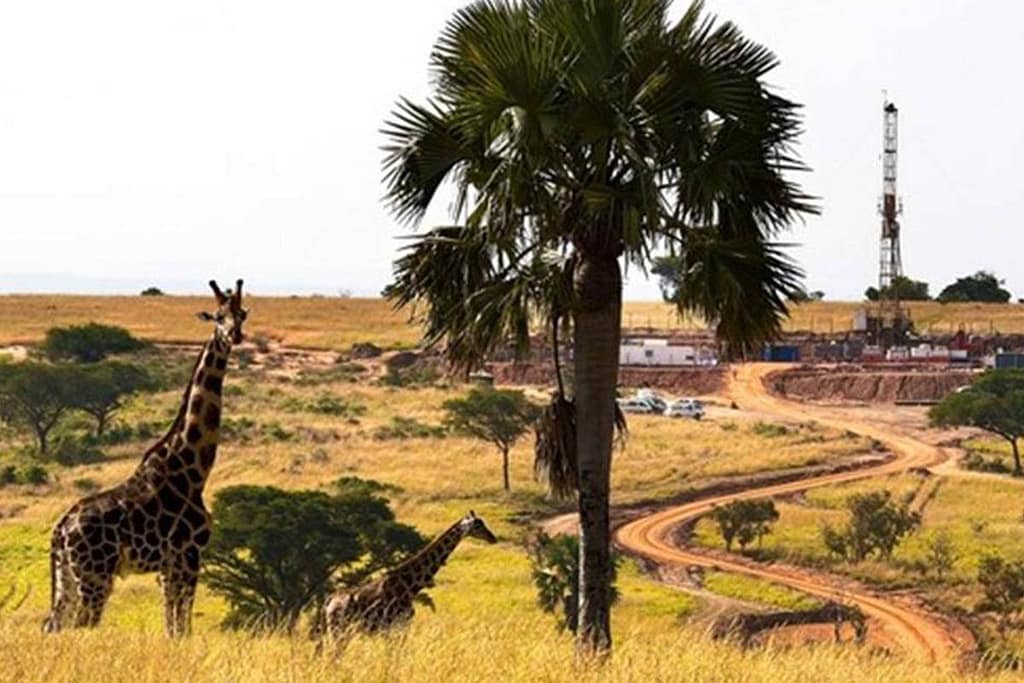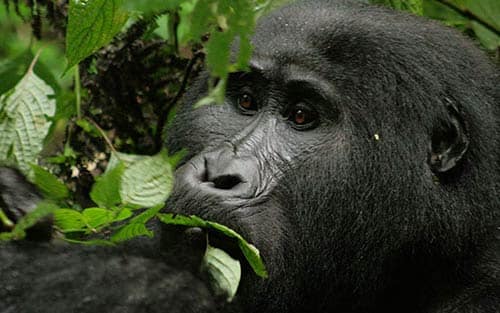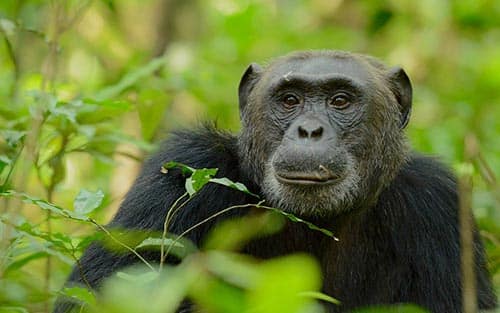Responsible tourism in Uganda
Responsible tourism in Uganda is a way of meeting the needs of present tourists and host destinations while protecting and enhancing opportunities for the future. Being in Uganda can feel like such a privilege. Surrounded by phenomenal volcanic landscapes, wildlife that many of us grew up dreaming of seeing with our own eyes, and some of the continent’s most friendly, welcoming people making you feel like a VIP wherever you go – it’s hard not to feel overwhelmed by it all. Uganda really gives visitors all it can, and as guests we really should try to repay this kindness in some way.
While the country is incredibly rich in terms of biodiversity and culture, it is economically still very poor. Over 80 percent of Ugandans live in rural areas, with the majority working as subsistence farmers. The country has been battered over the years by military coups, murderous dictators, HIV epidemics and the Lord’s Resistance Army, a guerilla army led by Jospeh Kony that waged war on the northern regions of Uganda from 1987 for almost 20 years.
While these events are, thankfully, over, their effects still linger, in terms of poverty rates, illiteracy, lack of access to education, poor infrastructure and orphaned children. Uganda may appear to fit the “poor but happy” narrative that so many travellers love, with beaming faces, energetic dances and excitable kids, but it’s worth reading up on the country’s history, chatting to your tour leader and finding out more about the realities of daily Ugandan life before being sucked in quite so easily by those winning smiles.
Wildlife and Environments
Conservation and Mountain gorillas
The conservation of Uganda’s mountain gorillas is a genuine success story. The species was discovered in 1902, and numbers subsequently fell at an alarming rate due to habitat loss, poaching, war and disease – which is easily transmitted from humans. By 1989 there were an estimated 620 mountain gorillas remaining in the wild, and as this species does not survive in captivity (unlike the lowland gorilla of Central and West Africa), captive breeding was never an option.
Bwindi Impenetrable and Mgahinga Gorilla National Parks were created in 1991, and since then numbers have risen by some 60 percent to around 1008 gorillas. But simply gazetting the parks was not enough; it needed to go hand in hand with incredibly regulated and well managed tourism in order to ensure the necessary resources to ensure the parks remained safe.
Today, 11 gorilla families have been habituated for tourism in Bwindi (along with another family for research purposes only), and just eight tracking permits are issued per family, per day. The gorilla permit price is high at US $600 per person, for a maximum of one hour with the gorillas, and there is talk of this increasing further (permits in neighbouring Rwanda cost $1500) – but this money is ploughed straight back into the national parks and gorilla protection. And while it may seem expensive, the permits frequently sell out throughout high season, with some tourists booking two consecutive gorilla safaris to make the most of their time in Bwindi.
Turning tourist attractions into “exclusive” experiences is always controversial – and has had varying levels of success around the world. There are similar – though much higher – caps on visitor numbers in places such as the Galapagos Islands and Machu Picchu; though as these environments and monuments are gradually degrading, it has been argued that the restrictions have not gone far enough.
When it comes to the mountain gorillas, low tourist numbers and heavy restrictions (visitors can spend no more than an hour with the gorillas) are not simply a gimmick; they are essential to prevent the gorillas from becoming distressed or from catching diseases; even a common cold can prove highly dangerous. Being in their presence is a privilege, and it does have to come at a cost. But know that by visiting them you are contributing directly to their survival – and the experience is, ultimately, priceless.
Up to 2.5 billion barrels of oil have recently been discovered along Uganda’s western border – much of it right under Uganda’s oldest and largest national park: Murchison Falls. By the end of 2014, some 80 wells had been drilled there, generating around 60,000 tons of waste – although it is anticipated that there will be 600 wells in total. The adequate disposal of this waste, the risk of devastating oil spills and the impacts of the drilling and seismic testing on the region’s wildlife is a huge concern.
Worryingly, the oil deposits are known to stretch as far south as UNESCO-protected Lake Edward, cutting right though Uganda’s most fertile and wildlife-rich Rift Valley regions – including Queen Elizabeth National Park. The lake is bisected by the border with the DR Congo and on its western shore lies Congo’s Virunga National Park, Africa’s oldest national park and its most biodiverse. Virunga is also home to mountain gorillas. Following immense global pressure from conservationists and NGOs, Soco, the oil company granted the drilling concession in Lake Edward, pulled out in 2015, but the Ugandan and Congolese governments still want to pursue the oil extraction, despite the threats to the lake itself, the surrounding ecosystems and communities. According to Oil in Uganda, “an estimated 200,000 fishermen and local people depend on Lake Edward for their livelihoods. Any oil activities in this area could do significant damage on the lake, the broader ecosystem and people and animals that depend on it.”
There are mixed views on the discovery of oil. On one hand, the rapid injection of cash along with the infrastructure, such as new roads, which have accompanied the arrival of the oil companies, are much needed – especially around Murchison Falls. This is one of Uganda’s poorest regions; ravaged by civil war, as well as by drought, residents struggle to harvest crops and many still live in thatched-roofed mud huts, with no electricity or running water. But it is questionable how much money will actually reach those who need it most – especially as, having never had an oil industry before, Uganda lacks qualified engineers, scientists and technicians to work on the extraction and testing. Shipping in workers would cause enormous local tensions and heap pressure on the already struggling population. In addition, the ethics of the interested oil companies are highly questionable. An investigation by Global Witness revealed evidence of huge bribes paid to a corrupt Congolese military officer, who went on to threaten and even kill activists opposed to exploration by the oil company. Watch the excellent investigative documentary Virunga to learn more.
What you can do
There are a number of international organisations who are investigating, campaigning and lobbying for the oil under these precious ecosystems to remain in the ground. Share these campaigns, sign petitions and donate to organisations such as Global Witness and WWF. And of course, if you are lucky enough to be able to visit Uganda or the DR Congo, visit these incredible national parks to demonstrate to the governments how much more valuable they are while intact.
People and Culture
The vanishing Batwa & community tourism
However, there is another side to the gorilla success story that few visitors will ever be aware of. The gorillas weren’t the only inhabitants of these forests; they were home, too, to the Batwa people. This pygmy tribe is believed to be one of the oldest in Uganda, and lived a largely ancient hunter gatherer lifestyle in these forests until they were evicted on the creation of the national park in 1991, so called “conservation refugees”. Outside of the forests, this fertile region is a densely populated patchwork of farmland; there was no land for the Batwa to move onto and they became squatters. The Batwa spoke their own language and could not communicate with other local communities. They had not attended school, could not read or write, and had no farming traditions – meaning there was little they could contribute to local farmers. On top of this, they are incredibly marginalised and even despised by other communities, who see them as backward, lazy and alcoholics. While it is true that alcohol use has increased amongst the tribe, it’s also not a surprising development for a community that has been corralled into tiny, mud shacks on borrowed land, unable to enter the forest to pursue their traditional lifestyle and with an estimated life expectancy of less than 30.
The gorillas are thriving, yes, but at huge cost to the Batwa. They had lived sustainably alongside these great apes – as well as forest elephants, antelope and many other creatures – for many centuries, and rather than evicting them, it would perhaps have been more valuable to learn from them, and to work out a more sustainable and ethical way to save the gorillas. A quarter of a century after they were removed from their land, much of the knowledge – of the plants and animals – will have been lost irretrievably.
Dr. Christopher Kidd, from the Forest Peoples Programme, has spent many years working with the Batwa: “Changes to conservation practice and theory in the last decade have highlighted the importance of involving communities in the long term conservation of the world’s landscapes and the vital role indigenous peoples have, but these changes in thought have still to be felt in Uganda. The Batwa continue to struggle to have their lands and livelihoods returned to them and to have their rights to their lands recognised by the Uganda government.”
On the edges of Mgahinga Gorilla National Park, the Batwa Experience is a brilliant initiative which involves the local Batwa community in tourism. Crucially, it has partnered with the Uganda Wildlife Authority which means Batwa guides are allowed to enter the park – and the forest – as part of these tours. This is the only opportunity they have to do so. Full day tours take visitors along the lower slopes of the volcanoes and into the forest to see how the Batwa used to hunt antelope using spears, how they set up animal traps, harvested honey and lit fires. It’s incredible to see how the older Batwa guides seem to relax almost immediately as soon as they are back beneath the trees. There is also an opportunity to enter a sacred cave that the Batwa used to shelter in from enemies, and to enjoy traditional song and dance. It’s a wonderful tour – even more so knowing the tribe’s history.
Not all Batwa encounters are as responsible. Many are much more exploitative of the tribe, who may perform for tourists without any opportunity for interaction, or there may be “pygmy village” tours which use the community as an attraction, without the permission of local residents. In both of these cases, the Batwa may also not receive payment for their participation. So ask your holiday company for information, and ensure your tour is ethical.
Paul Callcutt, from our supplier Natural World Safaris: “Responsible tourism holds the key to improving the situation for the Batwa people and responsible local lodges like Mt Gahinga Lodge has a trust to aid the Batwa people. It has been used to purchase land for pastoral purposes allowing them a dignified lifestyle that, while still somewhat alien to their traditional lifestyle, is a huge step forward from when they were initially displaced and left to fend for themselves with little or no support.”
Community tourism
Uganda is bubbling over with culture: 40 languages, countless customs and traditions, superb crafts and uplifting music and dance can be encountered all around the country. As tourism grows here, so too do the opportunities for local people to get involved. There are women’s craft cooperatives, weaving baskets and making pots. There are local guesthouses and lodges owned by entrepreneurial individuals or communities, such as the excellent Buhoma Community Lodge and Clouds Mountain Gorilla Lodge, both near Bwindi. Staying in a community-owned accommodation doesn’t necessarily mean you’ll be roughing it; Clouds is one of Uganda’s finest lodges – you’ll even have your own butler!
On the edges of Kibale Forest National Park, the wildlife-rich Bigodi Wetlands Sanctuary is managed by a community based organisation, which runs tours, produces and promotes local crafts and offers homestays and meals with a local family. And next to Queen Elizabeth National Park, Katwe community offers tours of its fascinating salt lake, where salt is still mined today – a gruelling task in a particularly surreal landscape.
What you can do
As well as the above, there are many, many more example of community based tourism in Uganda, which ensures that your money stays in the country and reaches the people who need it most. Most tourism in Uganda takes place in its national parks with official guides – which shuts local residents and businesses out. But by looking beyond the parks, even for just a couple of days of your holiday, your money will go much further, and you’ll completely shift your opinion of Uganda as a place to see wildlife. Uganda’s people are every bit as fascinating.
For more tips on responsible tourism in Uganda, visit the Responsible travel link.
















